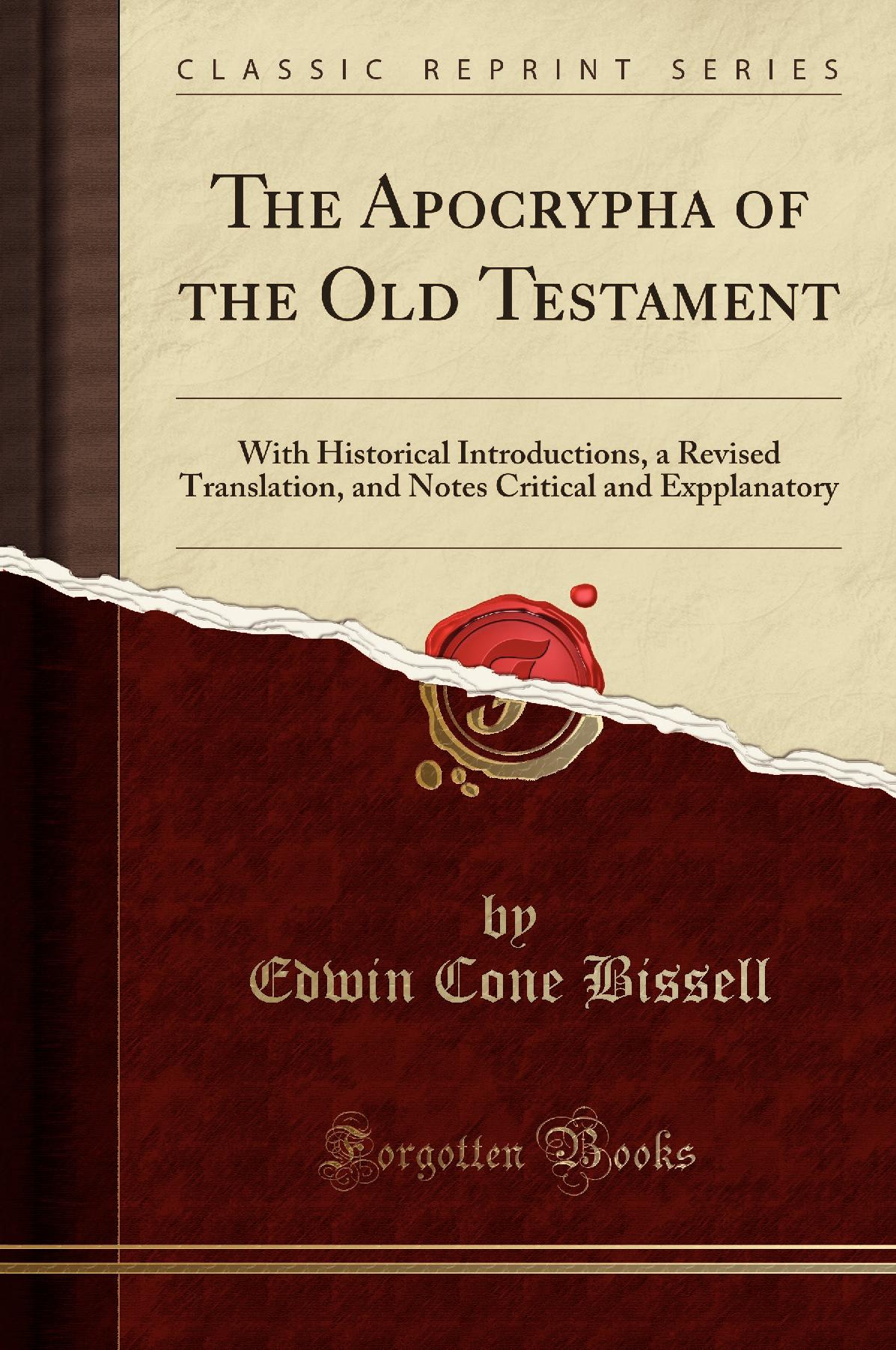Description
Excerpt from The Apocrypha of the Old Testament: With Historical Introductions, a Revised Translation, and Notes Critical and Expplanatory
The: apocryphal books of the Old Testament have been greatly neglected by English divines. No critical commentary in the English language has appeared since that of Richard Arnald (died first published in London 1744, and for the fourth time (with corree tions by Pitman), in 1822, and embodied in the Critical Commentary of Patrick, Lowth, Arnald, Whitby, and Lowman. Since the British and Foreign, and the American Bible Societies have ceased to circulate them, it is even difficult for the ordinary reader to obtain them.
They are, it is true, not equal in authority to the canonical books: they did not belong to the Hebrew canon; they were written after the extinction of prophecy; they are not quoted in the New Testament (the Book of Enoch referred to by Jude is not among the Apocrypha); the most learned among the Christian fathers, Origen, Eusebius, and Jerome, excluded them from the canon in its strict sense, although they made frequent use of them; they contain some Jewish superstitions, and furnish the Roman Catholics proof-texts for their doctrines of purgatory, prayers for the dead, and the meritoriousness Of good works.
Nevertheless they have very great historical importance: they fill the gap between the Old and New Testaments; they explain the rise of that condition of the Jewish people, their society and religion, in which we find it at the time of Christ and the Apostles; they contain much valuable and useful information. The books Of the Maccabees make us acquainted with the heroic period of Jewish history; Ecclesiasticus is almost equal to the Proverbs for its treasures of practical wisdom; Tobit and Judith are among the earliest and most interesting specimens of religious fiction. The Apocrypha are first found in the Greek Version Of the Old Testament (the Septuagint), from this they passed into the Latin Vulgate, and from this into all the Older Protestant versions and editions, though sometimes in smaller type, or with the heading that, while they are useful and edifying reading, they must not be put on a par with the inspired books of the Bible.
About the Publisher
Forgotten Books publishes hundreds of thousands of rare and classic books. Find more at www.forgottenbooks.com
This book is a reproduction of an important historical work. Forgotten Books uses state-of-the-art technology to digitally reconstruct the work, preserving the original format whilst repairing imperfections present in the aged copy. In rare cases, an imperfection in the original, such as a blemish or missing page, may be replicated in our edition. We do, however, repair the vast majority of imperfections successfully; any imperfections that remain are intentionally left to preserve the state of such historical works.
The: apocryphal books of the Old Testament have been greatly neglected by English divines. No critical commentary in the English language has appeared since that of Richard Arnald (died first published in London 1744, and for the fourth time (with corree tions by Pitman), in 1822, and embodied in the Critical Commentary of Patrick, Lowth, Arnald, Whitby, and Lowman. Since the British and Foreign, and the American Bible Societies have ceased to circulate them, it is even difficult for the ordinary reader to obtain them.
They are, it is true, not equal in authority to the canonical books: they did not belong to the Hebrew canon; they were written after the extinction of prophecy; they are not quoted in the New Testament (the Book of Enoch referred to by Jude is not among the Apocrypha); the most learned among the Christian fathers, Origen, Eusebius, and Jerome, excluded them from the canon in its strict sense, although they made frequent use of them; they contain some Jewish superstitions, and furnish the Roman Catholics proof-texts for their doctrines of purgatory, prayers for the dead, and the meritoriousness Of good works.
Nevertheless they have very great historical importance: they fill the gap between the Old and New Testaments; they explain the rise of that condition of the Jewish people, their society and religion, in which we find it at the time of Christ and the Apostles; they contain much valuable and useful information. The books Of the Maccabees make us acquainted with the heroic period of Jewish history; Ecclesiasticus is almost equal to the Proverbs for its treasures of practical wisdom; Tobit and Judith are among the earliest and most interesting specimens of religious fiction. The Apocrypha are first found in the Greek Version Of the Old Testament (the Septuagint), from this they passed into the Latin Vulgate, and from this into all the Older Protestant versions and editions, though sometimes in smaller type, or with the heading that, while they are useful and edifying reading, they must not be put on a par with the inspired books of the Bible.
About the Publisher
Forgotten Books publishes hundreds of thousands of rare and classic books. Find more at www.forgottenbooks.com
This book is a reproduction of an important historical work. Forgotten Books uses state-of-the-art technology to digitally reconstruct the work, preserving the original format whilst repairing imperfections present in the aged copy. In rare cases, an imperfection in the original, such as a blemish or missing page, may be replicated in our edition. We do, however, repair the vast majority of imperfections successfully; any imperfections that remain are intentionally left to preserve the state of such historical works.
Details
Publisher - Forgotten Books
Language - English
Paperback
Contributors
Author
Edwin Cone Bissell
Published Date -
ISBN - 9781333548933
Dimensions - 22.9 x 15.2 x 3.7 cm
Page Count - 691
Hardback
Contributors
Author
Edwin Cone Bissell
Published Date -
ISBN - 9780260029409
Dimensions - 22.9 x 15.2 x 3.7 cm
Page Count - 689
Payment & Security
Your payment information is processed securely. We do not store credit card details nor have access to your credit card information.

